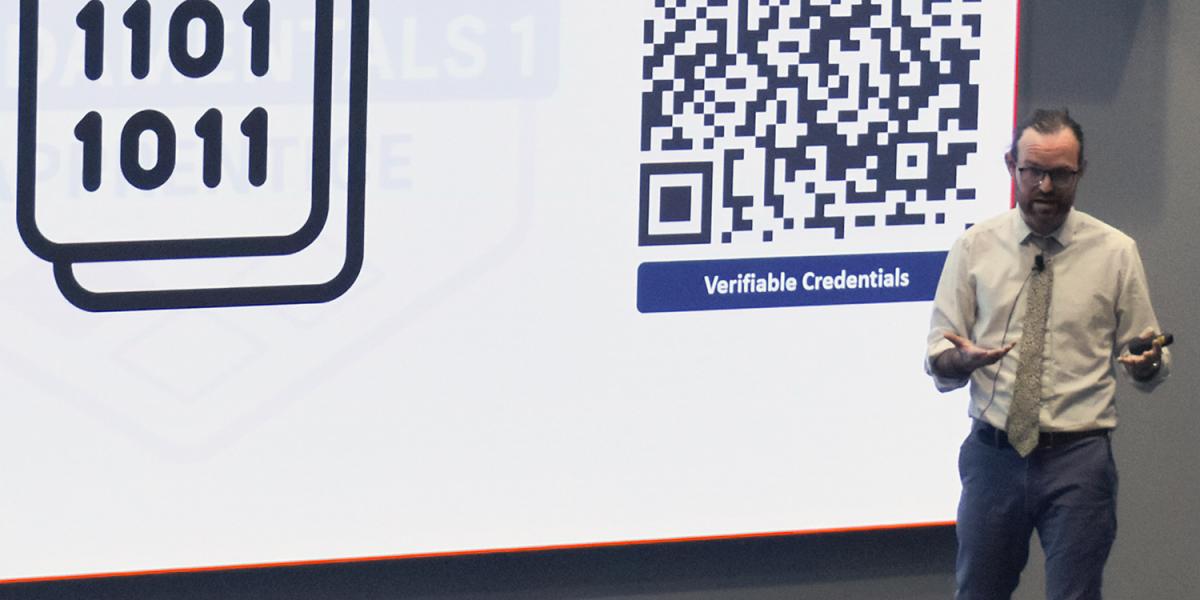Eric Sembrat, director of Digital Learning Technologies at C21U, presented an in-depth exploration of the future of digital credentials and their significance in lifetime learning at the “Inventing the Future of Learning and Work” symposium.
Sembrat explained that digital credentials are digital records of learning achievements, signed and held by the learner. These credentials can range from microcredentials for specific skills to digital badges, which were the precursor to digital credentials. He emphasized the broad interpretation of digital credentials, which could include items like a driver's license on your phone.
The real value of digital credentials lies in the metadata, which includes details like the issuer, the competency level, and cryptographic signatures ensuring the credential's authenticity. Sembrat discussed the integration of digital credentials into learning management systems and digital wallets, allowing learners to store and validate their academic achievements easily.

Sembrat highlighted Georgia Tech's involvement in the Digital Credentials Consortium, which aims to scale and provide open-source functionality for issuing digital credentials. He also touched on visual design, describing the variety and the importance of creating equity and understanding for external audiences.
Sembrat and his team’s research focuses on the utilization and innovation of digital credentials, aiming to improve their effectiveness and scalability for learners, institutions, and employers. One key point he made was the need for structured metadata to standardize the presentation of degrees and achievements across institutions. He also addressed the practical applications of digital credentials, emphasizing their role in professional growth and recruitment.
Looking ahead, Sembrat discussed the potential for digital credentials to aggregate learning achievements into comprehensive learner records, which could better describe a learner's skills and competencies. He emphasized the need for higher education to pivot towards skills-based learning and the importance of digital credentials in differentiating learners and building a living portfolio of their knowledge. He noted, "Building together that unique skillset, that living portfolio of your knowledge, skills, and competencies, is the next step toward more intentionality with digital credentials across your lifetime journey."
Additionally, Sembrat discussed the importance of trust in issuing digital credentials. He explained that it’s essential to build out a registry of issuers so that when looking at higher ed institutions, there is a trusted network of what Georgia Tech's digital identity and digital credentials are. Sembrat concluded the talk by inviting those interested in the topic to contact him to collaborate and conduct further research to advance the field of digital credentials.
(text and background only visible when logged in)